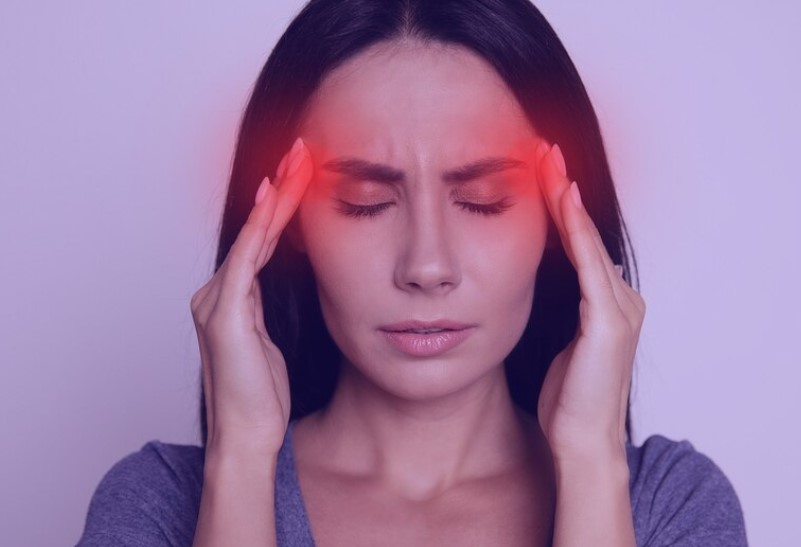Why Do Migraines Worsen in Winters?
Migraines are a common neurological condition that affects millions of people worldwide. For many migraine sufferers, colder months can bring about more frequent and intense headaches, making winter a challenging season. The question many ask is, why do migraines worsen in winters? In this article, a leading migraine doctor in Faridabad explains why migraines tend to worsen during winter and offers insights to help manage them effectively. There are several factors, including environmental changes, lifestyle adjustments, and even biological responses, that contribute to the worsening of migraines in the winter months.
- Temperature Fluctuations and Barometric Pressure
One of the primary triggers for migraines in winter is the drop in temperature and changes in barometric pressure. As the weather gets colder, the air pressure changes, which can have a significant impact on the body, especially for those prone to migraines. Studies show that changes in atmospheric pressure can affect the way blood flows to the brain, triggering a migraine attack in susceptible individuals.
The cold air itself can also cause blood vessels to constrict, which may exacerbate the intensity of a migraine. This, coupled with the dryness in the air during winter, can lead to dehydration, which is another well-known migraine trigger.
- Less Sunlight and Vitamin D Deficiency
During the winter months, the days are shorter, and sunlight is less abundant. This decrease in sunlight can lead to a deficiency in vitamin D, which plays a crucial role in maintaining a healthy nervous system. Low levels of vitamin D have been linked to various types of headaches, including migraines. Lack of sunlight can also affect melatonin production, disrupting sleep patterns and making individuals more susceptible to migraines.
Moreover, the cold weather might discourage outdoor activities, leading to a more sedentary lifestyle, which is another factor that can contribute to the frequency and severity of migraine attacks.
- Dry Air and Dehydration
While the summer heat often leads to increased sweating, which can trigger dehydration, winter also presents its own dehydration risks. Indoor heating systems, often used to combat the cold, can dry out the air, leading to dehydration of the body and the brain. Dehydration is one of the most common and easily preventable migraine triggers.
In winter, people tend to drink less water, opting for hot beverages like tea and coffee. However, caffeinated drinks can have a diuretic effect, further contributing to dehydration. Dry indoor environments also exacerbate sinus issues, leading to sinus headaches that can sometimes be mistaken for migraines.
- Stress and Holiday-related Triggers
Winter is often associated with the holiday season, which can bring both joy and stress. Increased holiday-related activities, family gatherings, and financial pressures can elevate stress levels. Stress is one of the most common triggers for migraines, and the holiday season, with its high expectations and busy schedules, can worsen the condition.
Moreover, winter can also affect sleep patterns. Cold nights may cause people to sleep less or in an uncomfortable position, which can contribute to migraines. The disruption of sleep, particularly if combined with stress, creates a perfect storm for triggering a migraine attack.
- Changes in Diet and Eating Habits
In winter, people often change their diets to incorporate more comfort foods, which can include chocolate, processed snacks, and rich meals. These foods can act as triggers for migraine sufferers, especially those that contain high levels of sugar, caffeine, or MSG. Eating larger meals or skipping meals due to colder weather can also trigger migraines in some individuals.
Managing Winter Migraines
While winter brings various challenges for migraine sufferers, there are several ways to manage the condition and reduce the impact of the season.
- Stay hydrated: Make sure to drink plenty of water, even when it’s cold outside. Avoid too many caffeinated or sugary drinks.
- Wear warm layers: Protect yourself from the cold to prevent temperature-related triggers. Scarves and hats can help keep you warm and reduce exposure to cold air.
- Maintain a consistent sleep schedule: Try to get a full night’s rest, as lack of sleep can exacerbate migraines.
- Consider vitamin D supplements: Speak to your doctor about taking a vitamin D supplement, especially during the winter months when sunlight exposure is limited.
- Manage stress: Engage in relaxation techniques such as meditation, yoga, or breathing exercises to manage stress.
Consult Dr. Kunal Bahrani – The Best Migraine Doctor in Faridabad
If you are experiencing more frequent or severe migraines during the winter, it’s important to consult with a specialist. Dr. Kunal Bahrani, one of the top neurologists and migraine doctors in Faridabad, has helped numerous patients manage their migraine symptoms effectively. With his expertise, you can learn more about potential triggers, lifestyle adjustments, and treatment options tailored to your specific needs.
Dr. Kunal Bahrani provides comprehensive care for migraines, from diagnosis to personalized treatment plans. If winter brings an uptick in your migraine attacks, don’t wait. Schedule a consultation with Dr. Kunal Bahrani today and get the support you need to manage your migraines effectively.
Contact Dr. Kunal Bahrani, the best migraine doctor in Faridabad, today to schedule your consultation and take the first step toward managing your migraines better!

